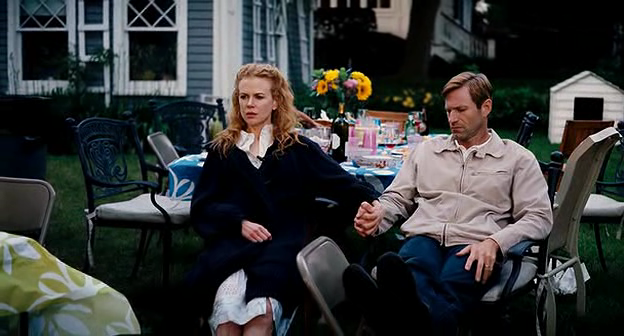Will This Childcare Nightmare Wake People Up To The Necessity Of Real Parental Leave?

Grieving mother Amber Scorah wrote in the Times this weekend about her infant, Karl, who died on his very first day at a day care — a day care he was only at because, though Scorah desperately tried to wrangle more (unpaid!) leave from her employer, she wasn’t able to.
I was uncomfortable with the idea of leaving him. I wanted to be his caregiver longer, until he was a bit bigger. … As the end of my leave drew near, I asked my company for more time off, without pay. I was told by the HR department that there was no system in place that allowed for extending maternity leaves. I went higher up the chain. Just two more months? There was nothing that could be done. The only option would be to quit.
Lest you assume the company in question is JP Morgan or something, let’s clear that up right away. Scorah works for Scholastic, for Christ’s sake, purveyor of “literacy resources for kids and outstanding children’s books.” Even kid-focused companies cannot be counted on to be family-friendly or flexible.
Anyway, since Scorah’s partner Lee was freelance, Scorah was responsible for providing health insurance for herself and Karl. As she saw it, she couldn’t quit. And “Lee’s quitting was out of the question. There was no way we could pay all our bills on my salary, which is lower than his.” They vetted childcare providers and made an entirely reasonable choice, putting Karl in a center by Scorah’s office, to which Scorah would be able to make daily visits.
Several hours into his first morning, Karl was dead. His cause of death remains officially undetermined.
This is a good place to mention that my child managed to return home alive from every day at her day care. My friends’ kids have all survived as well. Death at a day care is an anomaly — the regulations in place to ensure children’s health, or at a minimum, their survival, is part of the reason the costs are so exorbitant. (As we’ve mentioned, the price tag now “looks an awful lot like a year of public college tuition.”) Fatalities / accidents can happen at the hands of nannies, too, as well as at the hands of moms and dads themselves.
What is an everyday tragedy is that our profits-over-people system puts parents in these impossible positions. Women should not have to return to work less than or only two weeks after giving birth, as one quarter of all mothers in America right now are forced to do. Though she wasn’t ready to go back after three months, Scorah acknowledges that she was fortunate to get even that comparatively paltry amount of time: “I knew well enough that a million other mothers in America before me had faced the same choice and had done the same, even earlier than I had, though it tortured them emotionally, or physically, to do so.”
That’s unconscionable.
We are the world’s richest country. Surely we can carve out space for parents to care for their infants and then come back and generate profits. People are always telling moms and dads that the days are long but the years are short. Maybe instead they should tell that to employers and politicians. You can have it all, folks! Dedicated workers who are also happy and healthy, and a growing tax base / market for your products in the form of the next generation. You just can’t have it all at the same time with no sacrifices.
As Scorah puts it:
I wasn’t just up against the end of my parental leave. I was up against an entire culture that places very little value on caring for infants and small children. Parental leave reduces infant death, gives us healthier, more well-adjusted adults and helps women stay in the workforce. If we truly valued the 47 percent of the work force who are women, and the value of our families, things would look different.
Support The Billfold
The Billfold continues to exist thanks to support from our readers. Help us continue to do our work by making a monthly pledge on Patreon or a one-time-only contribution through PayPal.
Comments